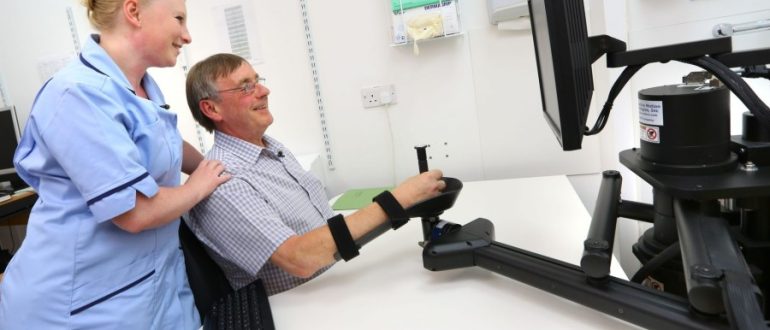For stroke survivors, recovery doesn’t end when they leave the hospital. Recognising the variation in post-hospital care, the NHS is currently running a number of pilot programmes across the country to develop new models of community-based rehab. These innovative approaches focus on integrated, high-intensity and personalised support right in people’s own homes. Here is a look at how three pilot sites are leading the way:
Northamptonshire: Fostering independence and vocational success
In Northamptonshire, the pilot programme is built on the principle of seamless, coordinated care. A multi-disciplinary team provides an integrated approach, delivering intensive rehab in the patient’s home. The programme includes specialist support to help stroke survivors return to work, with OTs and other specialists working with employers and patients to facilitate a successful return to the workplace or explore alternative roles if necessary. Services are delivered quickly, with therapeutic care beginning within 24 hours of hospital discharge. This pilot also addresses the patient’s wider needs, including psychological well-being, providing resources such as a patient forum, online communities and face-to-face support groups. Furthermore, a ‘self-directed rehab pathway’ trains staff to deliver conversational coaching, equipping patients with the skills for ongoing self-management.
North Central London: A dynamic, roving support network
The North Central London pilot takes a mobile and flexible approach to support stroke survivors. It uses a dynamic, roving team of rehab assistants who work under the guidance of senior staff. This model has a number of features that provide tailored, holistic care. The team works to help patients get home as quickly as possible and ensures their living environment is optimised for successful rehab. Assistants provide flexible, in-home therapy that is designed to provide an extended and intensive rehab experience. The team also provides advocacy and support, recognising the wider impact of stroke on both the patient and their loved ones.
Northumbria: Prioritising psychological well-being
The Northumbria pilot site is addressing a crucial yet often overlooked aspect of stroke recovery: psychological well-being. The programme focuses on ensuring mental health receives the same priority as physical recovery, offering a number of services to achieve this. A senior clinical psychologist has been employed to oversee the service, providing expert support for survivors’ psychological needs. The pilot offers enhanced peer support to both patients and their families and carers, which provides a crucial network for sharing experiences and offering mutual encouragement. Northumbria is also extending and expanding its Early Supported Discharge services, allowing more patients to receive intensive rehab in the comfort of their own homes.
Each of these pilot sites offers a unique and valuable perspective on how to improve community-based stroke rehab. While the approaches differ, they share a commitment to more intensive, integrated, and out-of-hospital care. The robust evaluation of these programmes will provide crucial evidence to inform the future development of national stroke services, helping to improve outcomes and quality of life for UK stroke survivors.



